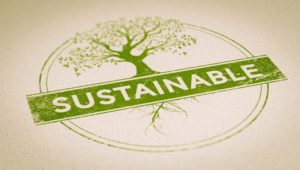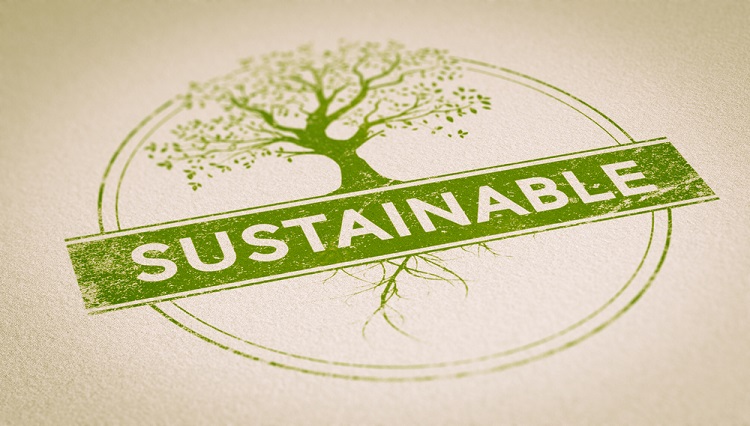Sustainable living is the training of your demand for natural assets by making sure that you regenerate what you use to the best of your ability.
“Nobody made a greater mistake than he who did nothing because he could do only a little.” – Edmund Burke
One of the common complaints or arguments against the perceived inefficacy of individual recycling efforts is that the net impact is so negligible. However, what critics fail to grasp is that the net impact of sustained efforts on multiple individual’s part – on a magnitude of millions – truly is efficient.
As an article from a UK website, Sustainable Environment online, notes that,
“The limits to renewable resources are identified by estimating sustainable yield while also ensuring that other functions of the ecosystem are protected.
The limits to the use of non-renewable resources are not, as previously thought, the danger of the resources simply running out. Instead, limits have more to do with the environmental impacts of mining and processing resources. Another concern regarding the consumption and use of non-renewable resources is the health impacts associated with their build-up in the environment.”

This, then, is the crux of the importance of sustained, collective recycling efforts on the part of individuals, in conjunction with those of local governments and corporate entities. They help build the foundation for sustainable development and living.
Recycling is More Than Cardboard, Cans and Bottles
“You never change things by fighting the existing reality. To change something, build a new model that makes the existing model obsolete.” – R. Buckminster Fuller
Recycling without a shift in our consumerist paradigm and lifestyle conventions is like bailing water from a leaky boat. We might succeed in keeping the boat afloat, but at the end of the day it’s still a leaky boat.
Just as sustainable living and development cannot succeed without some type of ingrained and institutionalized recycling, random recycling efforts without sustainable living will simply prolong our current resource-dependent development and lifestyles.
Sustainable development, building, and living goes far beyond plastic recycling bins in the workplace and inefficient residential single-stream recycling methods.
Beginning largely in the 1970s, recycling was initially targeted at reducing the need to regularly extract more resources from the environment. And, for many people, it still represents just that.
However, recycling today is a way of helping keep the environment clean for people and wildlife, for reducing the amount of waste sent to landfills, and reducing energy usage. In addition, it can minimize the environmental impact of extracting raw materials and producing new products by capturing existing waste materials that can be reused and repurposed.
According to an article from the National Cleantech Conference & Exhibition (NCCE) website,
“Recycling has also become an important facet in technology development as new systems are discovered to help recycle almost everything including metal, plastic, and water among other materials.
The ability to recycle waste helps to define cities, communities, and countries. A city with a well designed and effective recycling system is held in higher regard than one that pollutes its surroundings.”
It is not a stretch to say that recycling is central to sustainability as it helps save materials that can be reused from ending up in landfills and helps reduce the pollution of ecosystems.
Practical Tips for Sustainable Living in Real Life
“Ownership is a sine qua non of sustainable development.” – James Wolfensohn
It is also not a stretch to state that effective and successful efforts at sustainability are the responsibility of everyone, not just governments, institutions, or private corporations. One could say that “ownership” is required of each and every one of us if we are to bring into being a truly sustainable community and culture.
The NCCE website goes on to state that, in explaining why we must all be involved,
“To help, consider how to reduce the volume of waste you generate, and reuse materials whenever possible. Appropriate policies need to be passed at the governmental level to make recycling cheap and dumping waste expensive. People committed to recycling materials should also be rewarded.”
While it may be nice to plan, design, and build a totally green and sustainable living structure, for most of us it comes down to simply increasing our degree of sustainable living right where we are.
And here a few practical tips for achieving that:
- Minimize use of appliances
- Use cold water for washing clothes
- Use LED light bulbs everywhere
- Switch to a “smart” thermostat
- Avoid plastic water and beverage bottles
- Use your own shopping bag – avoid plastic bags
- Reduce paper use like napkins and paper towels
- Combine tasks when using your car and reduce trips
- Walk or take a bus if you can
- Consider a more minimalist lifestyle with less things
Practical Guidance and Experienced Consulting for Sustainable Building and Living
Sustainable living is not only structures but lifestyle.
And that often requires the help of outside guidance. As experienced and knowledgeable professionals, we can make the process much easier for homeowners, contractors, and business owners who want to benefit by implementing green and sustainable building practices.
Whether you’re a contractor about to build a home, a homeowner planning to build your own home or an addition, or a business owner who wants to create a more sustainable facility, investing in sustainability consulting will benefit you.
A sustainable construction consultant can provide guidance and direction for any aspect of a project, whether it involves new construction, retrofitting for energy efficiency, adding, or upgrading energy saving components, or home hardening best practices.
An experienced construction consultant can guide you in all the phases of your project and answer any questions. To learn more, email us at crystalconstruction@aol.com or give us a call at (707) 865-5157.

